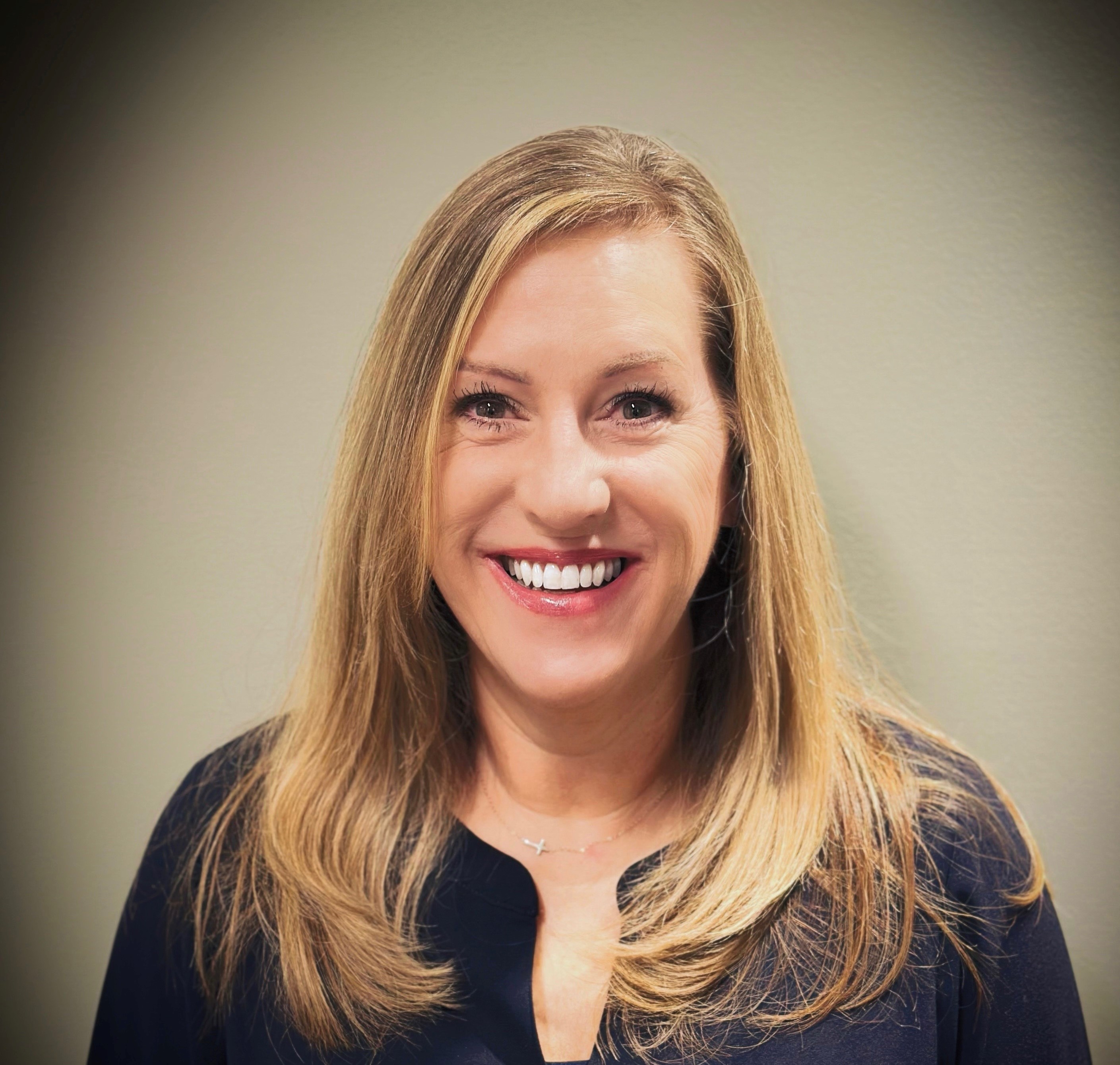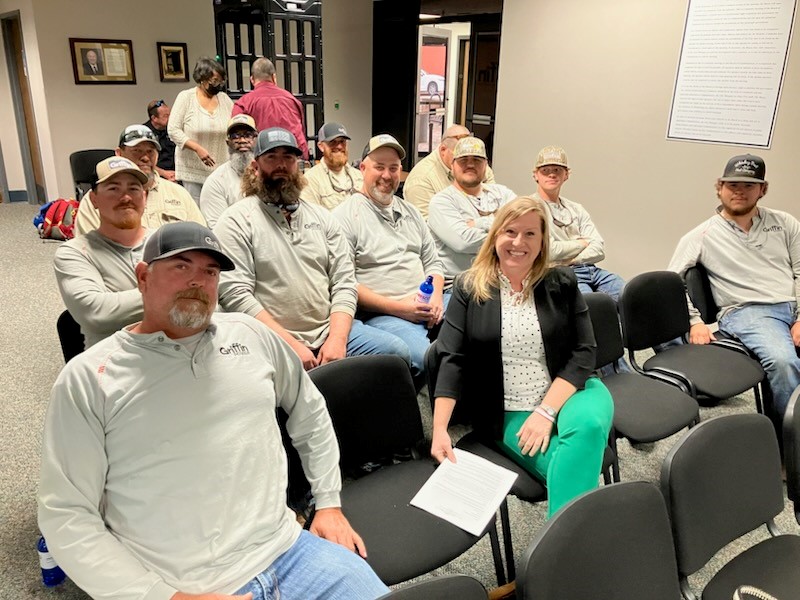 Jennifer Freeman has served as the electric director at Griffin Power in Georgia since 2020. She joined Griffin Power in 2018 after working for other city departments for more than two decades, including as a planner and an administrative coordinator. Under her leadership, Griffin Power has been working on modernizing Griffin Power’s grid, implementing its first outage management system, which has led to marked advancements in both quality of service and downtime response. Freeman has been a dedicated supporter of the Griffin-Spalding Chamber of Commerce and is actively engaged with public power entities across the state, including MEAG Power and Electric Cities of Georgia. She is a recipient of the 2025 Mark Crisson Leadership and Managerial Excellence Award from the American Public Power Association.
Jennifer Freeman has served as the electric director at Griffin Power in Georgia since 2020. She joined Griffin Power in 2018 after working for other city departments for more than two decades, including as a planner and an administrative coordinator. Under her leadership, Griffin Power has been working on modernizing Griffin Power’s grid, implementing its first outage management system, which has led to marked advancements in both quality of service and downtime response. Freeman has been a dedicated supporter of the Griffin-Spalding Chamber of Commerce and is actively engaged with public power entities across the state, including MEAG Power and Electric Cities of Georgia. She is a recipient of the 2025 Mark Crisson Leadership and Managerial Excellence Award from the American Public Power Association.
How did you come to work in public power?
I started as a city employee in 1996. The bulk of my career had been in planning and development, and I thought my career might eventually lead me to being the director of planning and development. Then, in 2018, our marketing operations manager departed to work for Electric Cities of Georgia. The electric director at the time approached me and asked if I felt that I would be a good fit for that position. I had a lot of institutional knowledge but no electric background except for my first few years working in customer service. I was nervous at first but incredibly grateful for the opportunity, where I worked with our key accounts and was a back-up for the electric director on the operations side. I worked in that role for a couple of years, and in 2020, the director's position opened.
I've loved my career in the electric department—it's been my passion, and I've been lucky to work with such an awesome group of people all around. If you love what you do, then it's not really a job. It's your passion, and that just makes it that much better and easier to come to work every day.
Was there an important lesson or something unexpected to find when you came to work for the utility?
It was a breath of fresh air. I love the city of Griffin. I was born and raised here, so it's always wonderful to give back to the community that raised you. It’s a different group of folks in this industry overall. Everybody is exceptionally kind and wants to help one another.
We had five tornadoes hit our community in 2023. And to see all the people that stepped up — not just community leaders, but through the mutual aid partnerships that we have with other public power providers as well — was amazing. We had 180 lineworkers come in from various places all over Georgia and even some from Alabama. Everybody came in and was willing to help and work 16 hours a day without complaining. This industry as a whole has taught me the goodness of people.
How has a background in customer service shaped your perspective on leading the utility?
I think it has been very beneficial. We're here to serve the people, that's just the bottom line. Service has to be your platform. At the end of the day, that’s what you need to be successful in public power. My group as a whole helps in every way that we can.
It’s important to remember that human capital is your most important asset. If you don't care for your people, you're never going to be successful. It all comes down to how you treat them — keep them safe, give them the tools they need to work efficiently, and value them. And let them know that you value them. That should be your top priority, always.

What priorities does the city have right now and in planning for its future?
We're very proud to have implemented our outage management system, since we're one of the few municipalities in Georgia that have a full OMS. It used to be when there was a storm that came through — the phones are ringing off the hook and you're taking notes on sticky notes. It was chaos. Having an OMS has streamlined that. It’s very manageable now. People just want to know that you’re aware their power is out, and now they can view the map and see that their area is marked.
We are also shopping for a new advanced metering infrastructure system that will integrate seamlessly with our OMS so that everything communicates with each other. We want real-time data flowing in a way that improves all systems. We've got a pilot program that's budgeted for this fiscal year, and we're trying to get that rolled out to be implemented by June 30. We want to include as many customers as possible so that we can get solid feedback as to how it works with our broader system.
We're also in the process of putting out an RFP for a new SCADA system, with the goal of integrating the AMI, OMS, and SCADA.
People don’t invest in a community if they don’t see it being successful. Griffin is seeing tremendous growth — residential, commercial, and industrial — and moving forward in a positive trajectory. We have several new subdivisions finishing out and coming online. We've got quite a bit of new multifamily development, as well as apartments and a hotel in the pipeline as well as some commercial growth.
What do you think makes for a successful leader of a public power utility?
Trust your people and don't micromanage. It’s also important to not be intimidated when somebody knows more than you. Instead, build off of that and value their knowledge. I have a line construction superintendent that's an expert in his field. I try to give him the tools he needs to work safely, efficiently, and effectively, but I try not to step into his lane and tell him how to do his job because I don’t know what makes that operation run best — he does. This applies to every division in my department.
I have a great team here, but I try to never micromanage them. I just give them the resources they need and let them flourish.

